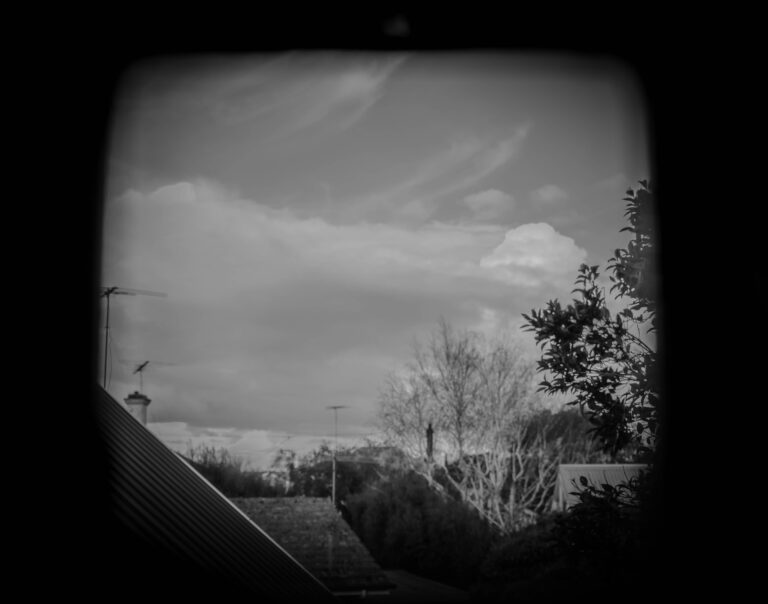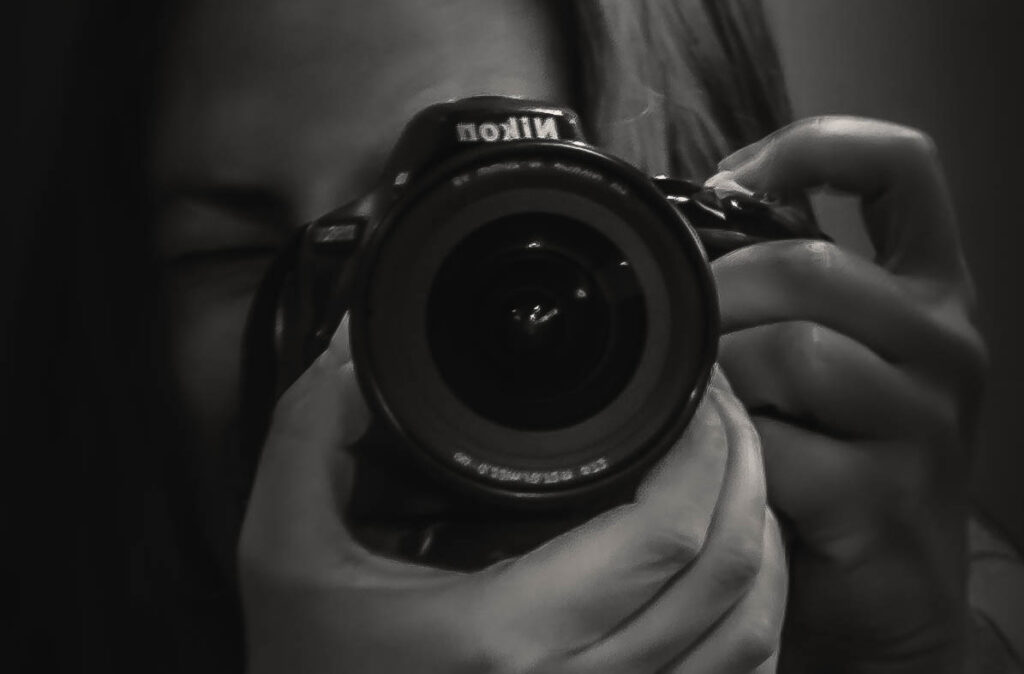In a mere eight months, the entire human population has been confronted with a new, mysterious illness we refer to as COVID-19. Many of us have developed a comprehensive understanding of Covid, and the risks it presents, not only to ourselves but to everybody surrounding us. In a sense, we’ve become a hostage. To avoid contracting Covid, a virus that has an incredibly high rate of transmission, the main message is: home is safe, the world is not. Consequently, many of us have withdrawn from society, in self-isolation. Such behaviour is highly commended and has come to feel like normality.
As the months slip by, the containment of transmission rates has become a major issue. Researchers are seeking to develop a safe vaccine as quickly as possible but people’s mental health is suffering due to the isolation. Especially, eating disorders (EDs), which have one of the highest risks of mortality among mental illnesses, have increased in severity.
Home is safe; the world is not
Media outlets such as the news, social media and TV in general, are contributing to our innate sense of anxiety and fear. As we’re now witnessing, many people continue to choose the safe and highly praised option of self-isolating, despite not having to do so. Yet, this is an option that for many, is a potentially dangerous choice.
You may wonder since when has staying home been considered dangerous? For many people, it’s perfectly safe. Yet, for others, being shut up at home on an ongoing basis is far from helpful. Having had my fair share of lived experience with an ED, where the act of self-isolating was a saviour, I now see it in a much different light.
Unlike COVID-19, EDs thrive on isolation; the more isolated, the better. Given this, our current scenario is in desperate need of more consideration. You may also be thinking, “But I don’t have an ED, so it doesn’t impact me”. You may be 100 per cent right, but there are no guarantees that it won’t happen to you or someone you love. We shouldn’t fall into complacency; believing this is only a risk for those who have already experienced an ED.
Isolation, in combination with an immense sense of worry, fear and uncertainty, can be a trigger for anyone. People who have a genetic predisposition or family history of ED are especially vulnerable.
For severe and life-threatening eating disorders, the current living conditions present the perfect scenario for a person’s mind to start playing tricks, immersing them in ED’s world.
The very act of following the Victorian Government’s rules, unfortunately, provides the ideal environment for an otherwise dormant ED to re-emerge and re-establish old and life-threatening behaviours. This seems unfair, when one has been engaged in climbing the mammoth mountain of recovery—a mountain covered with some of the most difficult of obstacles at the best of times. Add the weight of COVID-19 and other issues and the mountain becomes increasingly unclimbable.
Yet, there’s more to this picture than isolation. Limited access to essential services, fear of food shortages and the everyday mayhem we’ve experienced when shopping, all play a role in the inner workings of an ED. The worst aspect is the overall sense of uncertainty. EDs love to be in control, and they do an excellent (self-harming) job. Therefore, having little insight into what the future holds gives an ED the perfect reason to step up and offer some sense of false control.
You may wonder, how does this manifest in someone with an ED? A reduction or increase in food intake, restricting certain foods, skipping meals, crazy diets, body checking, excessive exercise, the list goes on. What it comes down to is, if we can’t control what’s going on around us, at least we can have some sense of control over what’s going on inside us. The thought process is simple but oh so complicated at the same time. Here is an example (hypothetical) to demonstrate the cycle:
Meet Sue, a lovely lady who lives alone. She lost a full-time job recently, due to the emergence of COVID-19 and mass job loss; she now finds herself on Jobkeeper with bills to pay and an uncertain future. Unbeknown to anyone in Sue’s life, she has been diagnosed with severe bulimia but is too ashamed to share this. Like many of us, at the onset of COVID-19, Sue decided the best action was to visit the supermarket and stock up. Faced with extreme food shortages and intense anxiety in a busy and hectic supermarket, this was an incredibly stressful situation. Unacceptable behaviour by shoppers out of pure frustration became quite common. The possibilities here are endless.
To Sue’s credit, she has acted responsibly for the benefit of her community but perhaps not for the good of herself. The remainder of the day is where it all falls to pieces. Sue drives straight home from the shops, on her way, witnessing COVID-19 signs and public places in the process of being shut down. Arriving home, Sue turns on the TV to find more negative and depressing virus-related news; it’s everywhere, it’s unrelenting, it’s overtaking every thought in her head. Life is feeling more and more overwhelming, and Sue is feeling helpless and out of control. What would you do? For Sue and many others in a similar position, the only course of action is to devour today’s shopping; perhaps all of the shop. Weeks of food consumed in one day. Why? Because such intake of food shuts out the harsh and painful realities of life. The fear and loneliness are soothed and numbed in an instant, maybe they’ve even been forgotten altogether.
For Sue, bingeing is a coping strategy, and it’s the only one she knows. Following her visit to the supermarket, she used food to tune out of a stressful world and its increasing problems. This occurrence is not a one-off; this is merely another binge in an ongoing cycle. However, the worst is yet to come. Once Sue comes out of her food ‘coma’ and has to face the reality of what she has done — the food, the quantity she has eaten and what that will do to her body, the real pain and consequences will take over. The self-hate, the self-punishment and other painful compensative behaviours take hold. She must do this; her ED tells her so. She has been weak and now must attempt to make amends by reversing the damage done through more self-harming behaviours. Until next time anyway.
A long history together; Just me, my ED
If you’re reading my blogs, obviously you know, I’m no stranger to EDs. Having watched my mother battle her own ED, only to develop the illness myself, I’m a credible source with an abundance of knowledge to share. If possible to get a degree through life experience, I’m pretty confident I’d qualify for a Master of Eating Disorders, possibly with honours!
When we first learnt of this horrid virus COVID-19, early this year, I was moving up the steep mountain of recovery. I’d completed a six-week inpatient program specifically for people with an ED; I’d set myself up with the help I needed at home and with my team of medical specialists to support me on my journey. I felt as prepared as possible, and crucially, I had space I required to prioritize my health and well-being. Not surprisingly, I experienced many ups and downs. Leaving the eating disorder unit was like a big spring clean; only it wasn’t spring; it was merely me getting rid of my own internal rubbish (ED).
The dynamic duo: Life with two bullies, ED and COVID-19
Together, COVID-19 and an ED can be likened to two very naughty and nasty bullies, conspiring to make life feel like an endless influx of additional complications to overcome. None of us should feel shame when reflecting on our darkest days, nor should we feel the need to pretend or lie. Transparency wins every time, the more open we can be, the more responsible and effective we become in making any ED squirm and squeal in unruly protest. Transparency is everything that an ED is not. EDs are complete liars.
Always appear happy, confident, not particularly bothered by anything life throws your way. Just go ahead and laugh it off! Pretend life is full of everything grand. Problems? What problems do you speak of? Oh, and don’t forget to dress in an appropriate way, (despite hating it) never dare to go outside looking untidy, tired or flustered for that matter. Above all, make sure you appear to have all your s#%t together so that others yearn to know your secret to living an impeccably desirable life. Yup, that’s me and my ED, living the dream.
How have I fared throughout this rollercoaster year? Despite my best efforts, I’m the first to admit, this dynamic duo (ED and COVID-19) has proven to be a force to be reckoned with. I have struggled tremendously, waking each morning with a sense of being imprisoned within my own life. Each day, my mind has been filled with a mixed bag of emotions: anger, fear, seclusion, and sadness, to name a few. I have felt suffocated. I don’t enjoy being surrounded by people 24/7, adults or children, and have regularly found myself wanting to yell, “Leave me alone”. I need space, silence and solitude to maintain a sense of wellness. I also need space to do what’s essential for me. It balances out the craziness of having two young children.
Tears, tantrums and grumpiness describe me during this period. Most days, I have felt the need to escape. Physically, I’ve experienced a constant sense of nausea, fatigue and pain. The desire to eat at times disappeared. During the toughest of days, most days, the very thought of eating has made me feel ill.
Outwardly, I may have appeared to be okay, yet that was far from the truth. I didn’t want anyone to know.
This storm of destruction named COVID-19 has hit me and my recovery hard. Today, I am facing several large bumps that require work to overcome: bumps on my tireless journey to achieve that ultimate sense of freedom.


1 Comment
Once again very well written Sam and I strongly encourage you to keep openly expressing your feelings. Don’t hide behind the wall of positivity, at least self expression can be a way of dealing with the multiple challenges that we have all been faced with this year but also those like yourself with ED’s. I really do understand your explanation and then analogy of Sue to explain how and why we try to control the things we think we can and ultimately do ourselves more self harm through the control, devastion/embarrassment and guilt cycle, which is once again much like a mouse on a wheel that keeps turning and ultimately going nowhere. Your pics have been beautiful, take some solace in something that you will, with a little more time excel at and maybe enter some photographic comps as you have the eye for it. Keep turning your mind to developing this and recognise that you need to have balance in your life and eating habits to be able to pursue this area in a semi profressional capacity. All my very best wishes as you travel this journey that we are all trying to navigate with you in our own ways using our own coping mechanisms in an abnormal time. xxx